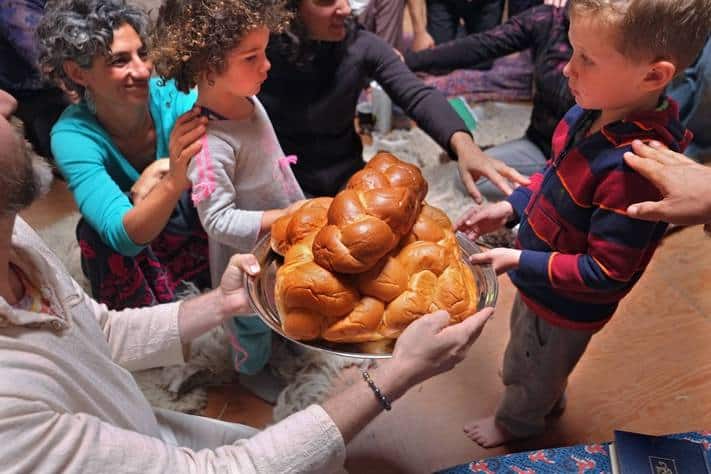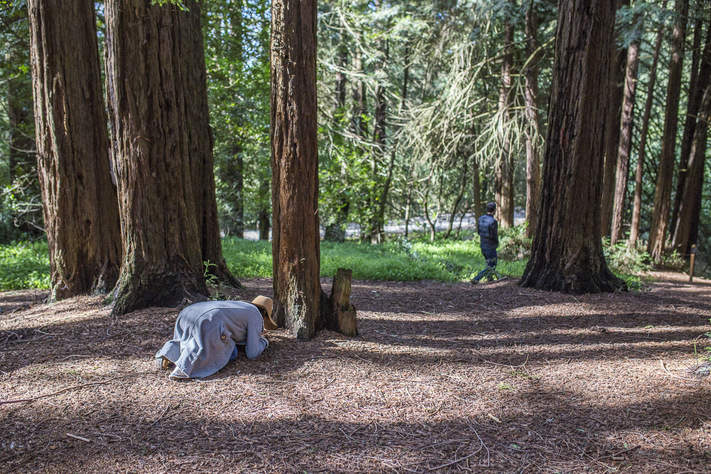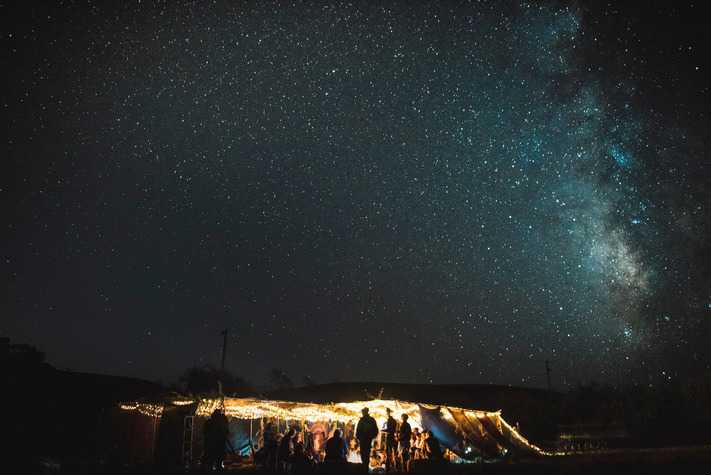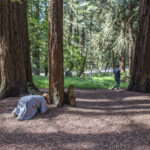by Sofia Marbach, Wilderness Torah
Parshat Re’eh

I set before you today a blessing and a curse;
The blessing, that you will heed the commandments of the Lord your God, which I command you today; and the curse, if you do not obey the commandments of the Lord your God, but turn away from the way I command you this day, to follow other gods, which you did not know.
— Deuteronomy 11:26-28
Yikes! The first lines of Re’eh present us with a terrifying binary: choose to follow closely each commandment or consider yourself cursed by God.
If we opt out of the choosing, what does Judaism leave for us?
The text goes on to list detailed instructions for violence against those who might persuade you to worship the gods of other peoples, and against the idols of those who tended your land before.
This is the kind of violence that mirrors and reinforces patriarchal systems of dominance and oppression lived today and throughout history. So how do we grapple with guidelines for patriarchal violence in our holiest book — a violence that divides us into binary understandings of the world? How do we connect to tradition as “People of the Book” if we can’t accept that the Book was written without the critical perspectives of the marginalized?
At some point in this asking, we might arrive at an oft-repeated reminder::
שְׁמַע יִשְׂרָאֵל יְהוָה אֱלֹהֵינוּ יְהוָה אֶחָֽד
Sh’ma Yisrael Adonai Eloheinu Adonai Echad
Listen, you Godwrestlers. The gods of the many are One.
Thank God! someone called us Godwrestlers.
Thank God! our tradition invites radical interpretation of the Torah of our own conviction.
Thank God! we were tasked with the holy work of wrestling with a personified God and challenging a patriarchal hierarchy that reinforces false separation and denies the fundamental oneness of creation.
So again, back to Re’eh and the question of how we relate to conflicting narratives of unity and binary divisions.
A list of dos and don’ts for animal consumption that a patriarch wrote for peers in an era I don’t recognize does not connect with me. And it is enough to simply observe and dwell in that lack of connection.
The last lines of Re’eh give the commandments of the pilgrimage festivals—the invitation to leave behind everyday life each Passover, Shavuot and Sukkot to journey out into closeness with the Divine. If these are the only lines from the week’s Torah portion that resonate for me, then they are enough. Dayenu.
“There is a crack in everything; that’s how the light gets in” —Leonard Cohen ז״ל
Commandments bear the duality of a blessed curse. A state of disconnection with text; with tradition; with dogma, that so many of us dwell in, is valid. For plenty more, the structure, kevah, of mitzvot as guidelines for a holy life, is the ultimate gift.
Thank God! Jewish tradition honors the validity of multiple truths. Our tapestry of life is woven strong—with structure loose enough for divine line to shine through.
In our work through Wilderness Torah, we strive to awaken and celebrate the earth-based traditions of Judaism to nourish the connections between self, community, earth and Spirit. Where have these connections worn thin in us? What is the work that strengthens them in a lasting way?
Exploring dis/connection in each of these relationships allows us to better understand our place in weaving threads of life together.

As we read Re’eh, we’ve just moved through Tisha b’Av — a multidimensional space of pain and mourning — followed by Tu b’Av, a celebration of sovereign love (and a favorite day for weddings). This month reminds us both that grief is not evil and that joy can’t stand holy on its own. We are cursed with the blessed invitation to grieve joyously and dance under the heavy weight of the world.
The world today gives us plenty to grieve and to solve. Tikkun Olam, the repairing of brokenness through unification, is an idea — an obligation! — as old as our universal people, as old as our belief in divine and perfect unity.
The world has been broken for as long as we can remember and we celebrate its perfection in myriad ways. We can dance all we want between zooming into the tiniest fracture and panning out to an image of divine unity. Both are true.
I set before you today a blessing and a curse;
So the blessing/curse binary isn’t a binary at all.
It’s a perfectly, dually true allowance for us to learn to weave what divine connections are alive for each of us.

Sofia is Wilderness Torah’s Development & Operations Associate and JOFEE Fellow. She can be found stewing over a tiny craft project or radically amazed somewhere outside. Read her full bio here.
—
Editor’s Note: Welcome to D’varim HaMakom: The JOFEE Fellows Blog! Most weeks throughout the year, you’ll be hearing from the JOFEE Fellows: reflections on their experiences, successful programs they’ve planned and implemented, gleanings from the field, and connections to the weekly Torah portion and what they’ve learned from their experiences with place in their host communities for the year. Views expressed are the author’s and do not necessarily represent Hazon. Be sure to check back weekly!
